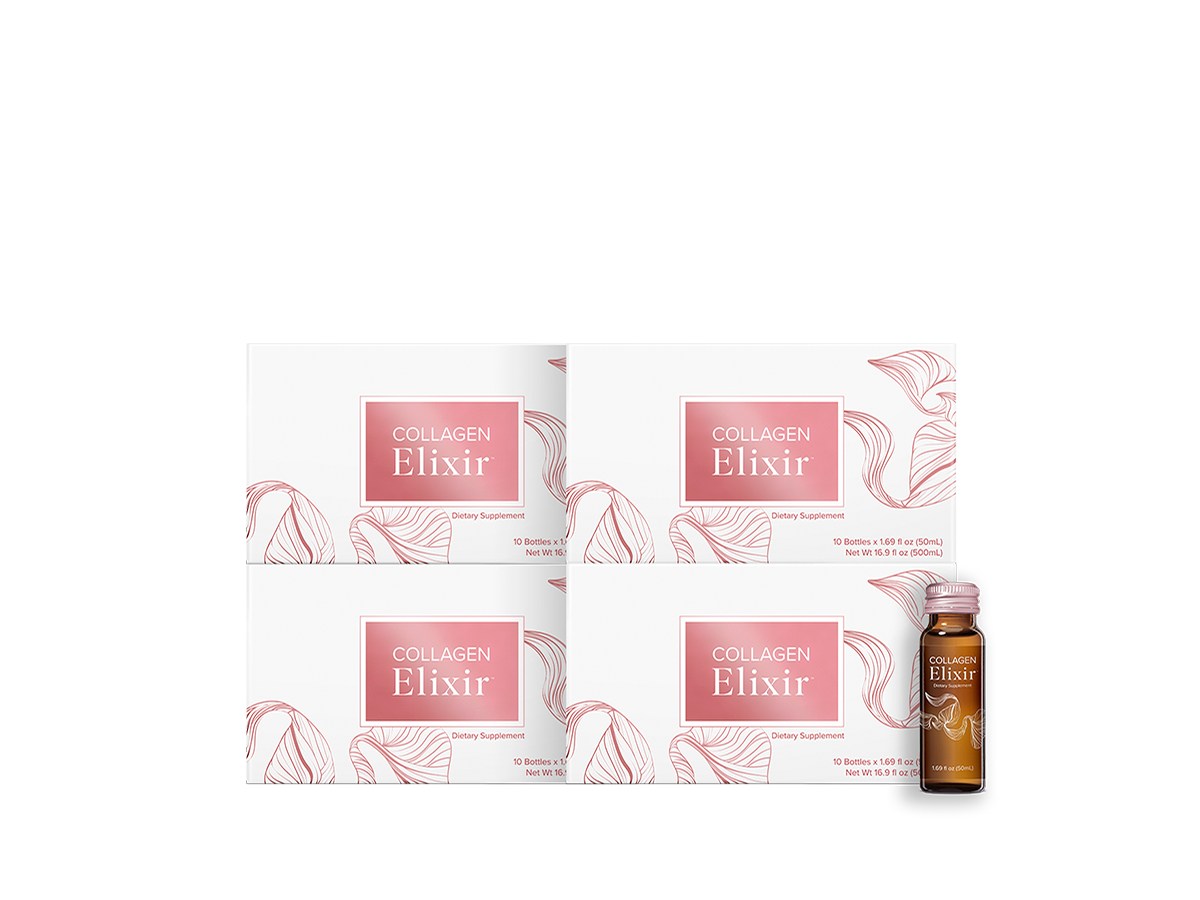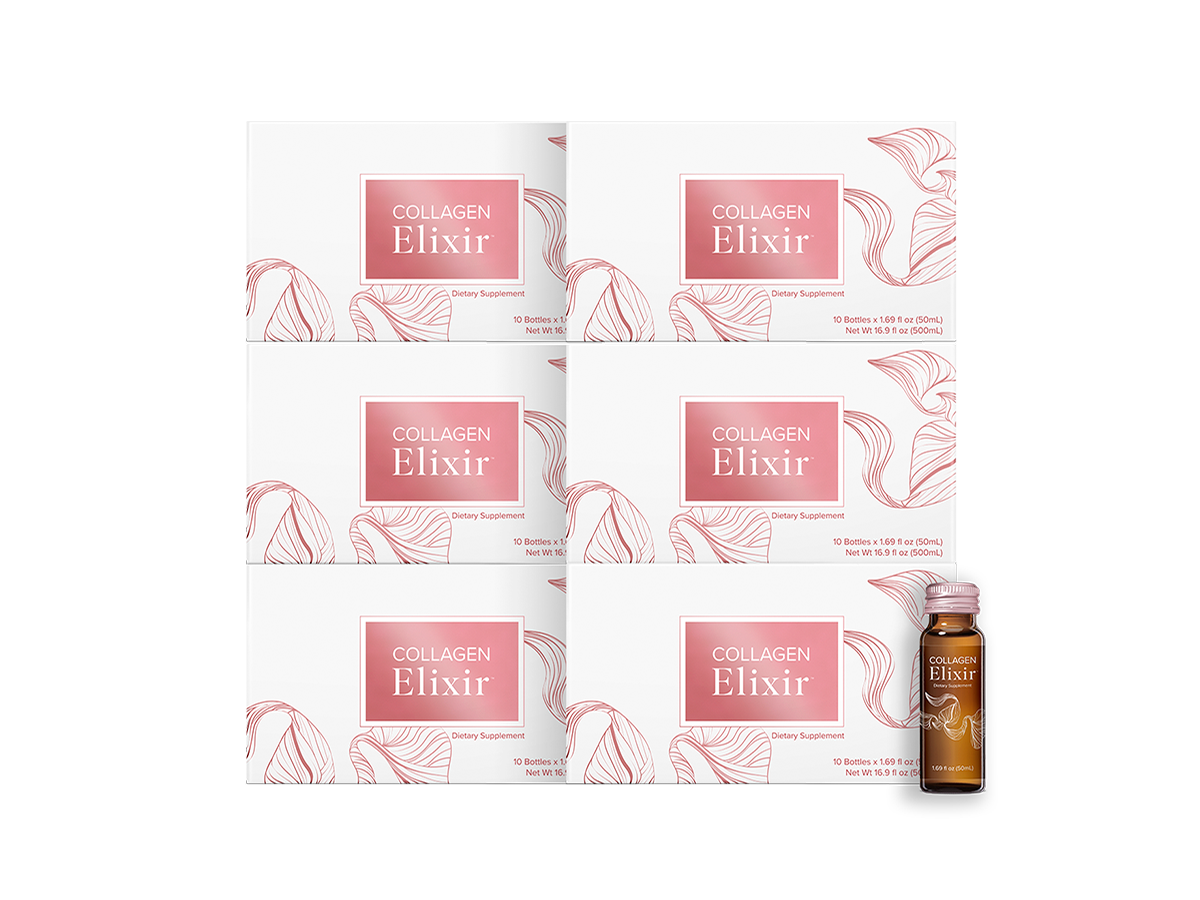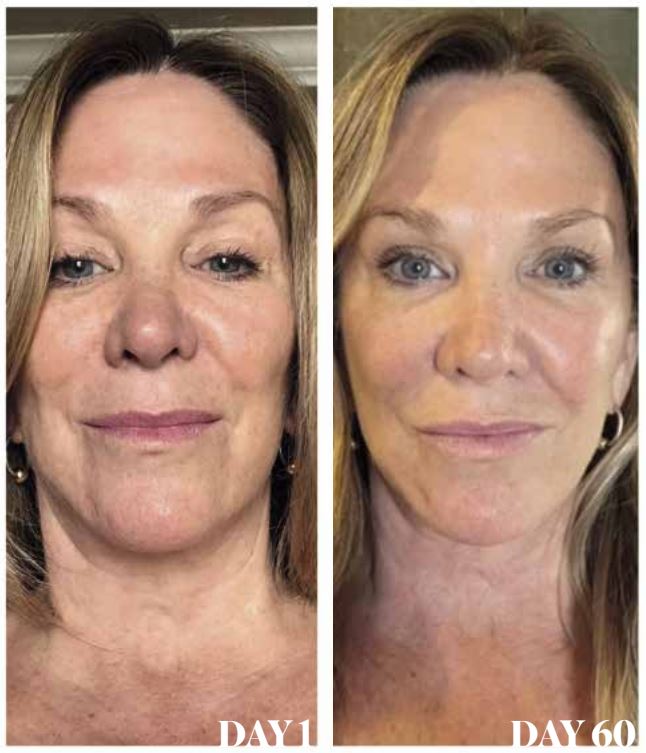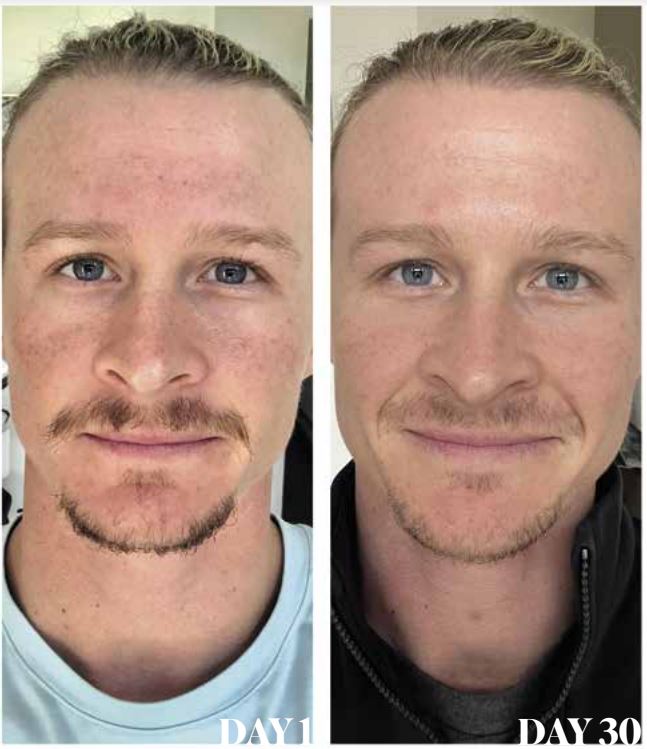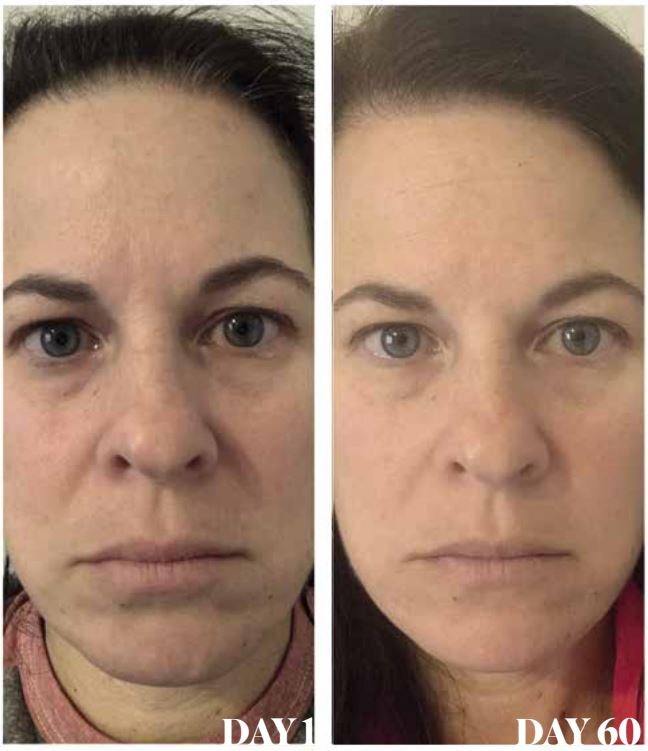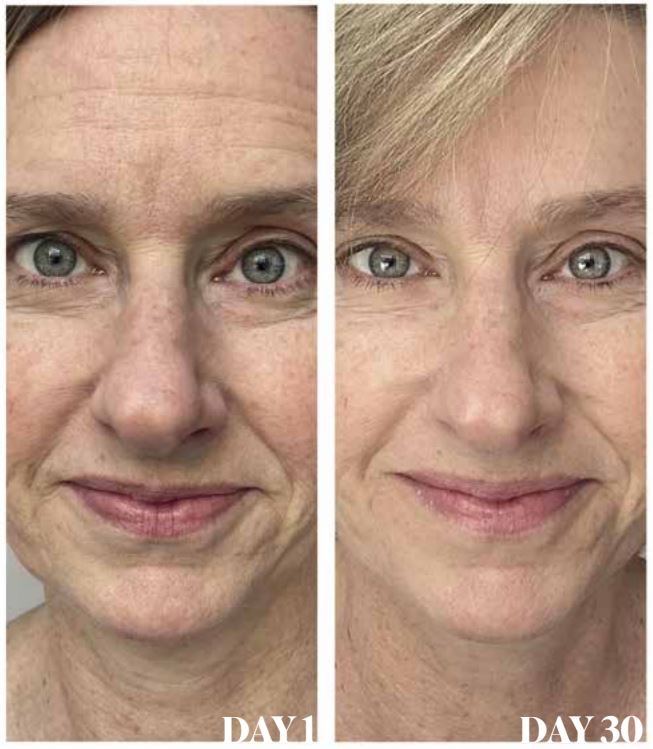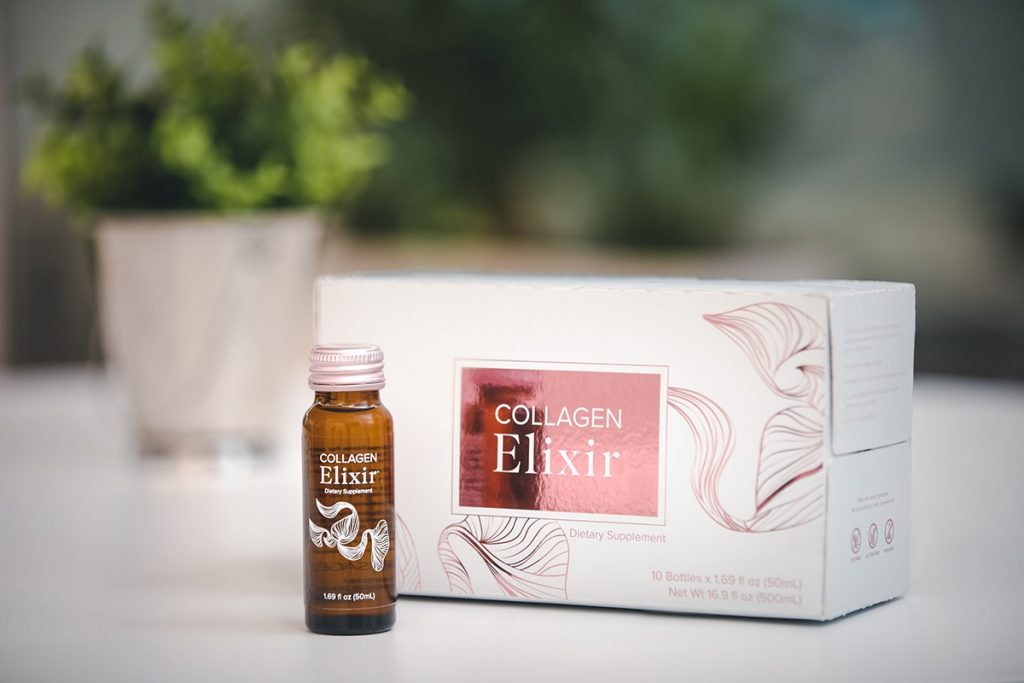What Is Collagen?
Collagen is the most abundant protein in your body, helping build nearly everything from your bones to your skin. It’s an essential component of connective tissue that provides strength, structure, and resilience throughout your body. It also creates the “glue” that holds cells in place within tissues. It’s hard to overstate how essential collagen is for every part of your body!
Your body naturally produces collagen every day, but production gradually declines over time. On the outside, the signs of diminished collagen production can show up as fine lines, wrinkles, and sagging skin (1). On the inside, the cartilage in joints can begin to lose its strength and resilience, impacting comfort and mobility (2).
There are many types of collagen, but most of the body is comprised of four types: type I, II, III and IV. These different types of collagen are found in different parts of the body and have specific functions (3).
Type I — The most predominant collagen in the body and the major structural component in skin, bone, tendons, connective tissues.
Type II — Mainly found in cartilage and serves as cushioning for joints.
Type III — Especially important in providing elasticity, this collagen is found in the deep layers of the skin, blood vessels, and many other tissues.
Type IV — Found throughout the body in structures that create a direct connection between cells and tissues.
What Damages Collagen?
Age aside, certain things have been shown to accelerate the depletion of collagen. Sun exposure damages the network of collagen fibers in the deep layers of the skin, leading to wrinkles and other visible signs of aging (4).
Exposure to environmental toxins, especially cigarette smoke, and an unhealthy diet also damage collagen and reduce normal collagen formation (5, 6).
What Supports Collagen Production?
Several nutrients are necessary for collagen production, particularly vitamin C, along with several amino acids including proline, hydroxyproline, and glycine. Minerals including iron and copper also play a role. Regularly consuming collagen-supporting nutrients is the best way to promote healthy collagen production.
Hydrolyzed collagen, also referred to as collagen peptides, provides support for collagen production. In foods, collagen is mainly in the form of long fibers, which are difficult for the body to digest. Collagen peptides are created by enzymes that break long collagen fibers into short pieces that are quickly absorbed and easy for the body to use in building collagen.
Do Collagen Peptides Have Benefits?
Yes! Scientific research demonstrates that collagen peptides provide important building blocks that help promote collagen production in the body (7).
Skin health: A number of studies show that consumption of collagen peptides supports skin health, with results that demonstrate improved hydration and elasticity of the skin (8). Studies also show a benefit for improving collagen synthesis in the deep layers of the skin, helping reduce fine lines and wrinkles (9, 10).
Bone health: Evidence suggests that collagen peptides may help provide nutritional support for maintaining bone density and strength (11, 12).
Joint health: Research supports the benefits of consuming collagen peptides for maintaining bone density, joint health, and improved joint comfort (11). In one placebo-controlled study, athletes reported benefits for joint comfort and range of motion after consuming 5 grams of collagen peptides daily for 12 weeks (13).
With benefits backed by science, there’s good reason for collagen’s increasing popularity and its importance to your well-being.
References
- Chung JH, Seo JY, Choi HR, Lee MK, Youn CS, Rhie G, Cho KH, Kim KH, Park KC, Eun HC. Modulation of skin collagen metabolism in aged and photoaged human skin in vivo. J Invest Dermatol. 2001 Nov;117(5):1218-24.
- Rahmati M, Nalesso G, Mobasheri A, Mozafari M. Aging and osteoarthritis: Central role of the extracellular matrix. Ageing Res Rev. 2017 Nov;40:20-30. doi:10.1016/j.arr.2017.07.004
- Fratzl P, editor. Collagen Structure and Mechanics. New York: Springer;2008.
- Chung JH, Seo JY, Choi HR, Lee MK, Youn CS, Rhie G, Cho KH, Kim KH, Park KC, Eun HC. Modulation of skin collagen metabolism in aged and photoaged human skin in vivo. J Invest Dermatol. 2001 Nov;117(5):1218-24.
- Knuutinen A, Kokkonen N, Risteli J, Vähäkangas K, Kallioinen M, Salo T, Sorsa T, Oikarinen A. Smoking affects collagen synthesis and extracellular matrix turnover in human skin. Br J Dermatol. 2002 Apr;146(4):588-94.
- Danby FW. Nutrition and aging skin: sugar and glycation. Clin Dermatol. 2010 Jul;28(4):409-11. doi: 10.1016/j.clindermatol.2010.03.018.
- Yazaki M, Ito Y, Yamada M, Goulas S, Teramoto S, Nakaya MA, Ohno S, Yamaguchi K. Oral Ingestion of collagen hydrolysate leads to the transportation of highly concentrated Gly-Pro-Hyp and its hydrolyzed form of Pro-Hyp into the bloodstream and skin. J Agric Food Chem. 2017 Mar 22;65(11):2315-2322. doi:10.1021/acs.jafc.6b05679.
- Inoue N, Sugihara F, Wang X. Ingestion of bioactive collagen hydrolysates enhance facial skin moisture and elasticity and reduce facial ageing signs in a randomised double-blind placebo-controlled clinical study. J Sci Food Agric. 2016 Sep;96(12):4077-81. doi: 10.1002/jsfa.7606.
- Kim DU, Chung HC, Choi J, Sakai Y, Lee BY. Oral intake of low-molecular-weight collagen peptide improves hydration, elasticity, and wrinkling in human skin: a randomized, double-blind, placebo-controlled study. Nutrients. 2018 Jun 26;10(7). doi: 10.3390/nu10070826.
- Asserin J, Lati E, Shioya T, Prawitt J. The effect of oral collagen peptide supplementation on skin moisture and the dermal collagen network: evidence from an ex vivo model and randomized, placebo-controlled clinical trials. J Cosmet Dermatol. 2015 Dec;14(4):291-301. doi: 10.1111/jocd.12174.
- Porfirio E, Fanaro G. Collagen supplementation as a complementary therapy for the prevention and treatment of osteoporosis and osteoarthritis: a systematic review. Rev Bras Geriatr Gerontol. 2016; 19(1): 153-164 doi: 10.1590/1809-9823.2016.14145
- Elam ML, Johnson SA, Hooshmand S, Feresin RG, Payton ME, Gu J, Arjmandi BH. A calcium-collagen chelate dietary supplement attenuates bone loss in postmenopausal women with osteopenia: a randomised controlled trial. J Med Food. 2015 Mar;18(3):324-31. doi: 10.1089/jmf.2014.0100.
- Zdzieblik D, Oesser S, Gollhofer A, König D. Improvement of activity-related knee joint discomfort following supplementation of specific collagen peptides. Appl Physiol Nutr Metab. 2017 Jun;42(6):588-595. doi: 10.1139/apnm-2016-0390.
Results depicted on this page are those of Isagenix Customers who used Collagen Elixir™ along with a skincare
and supplement routine for 30 &160 days with daily use. Results not typical. In a preliminary study,
participants experienced a 9.5% reduction in the appearance of wrinkles over 30 days.
